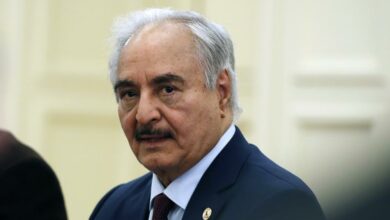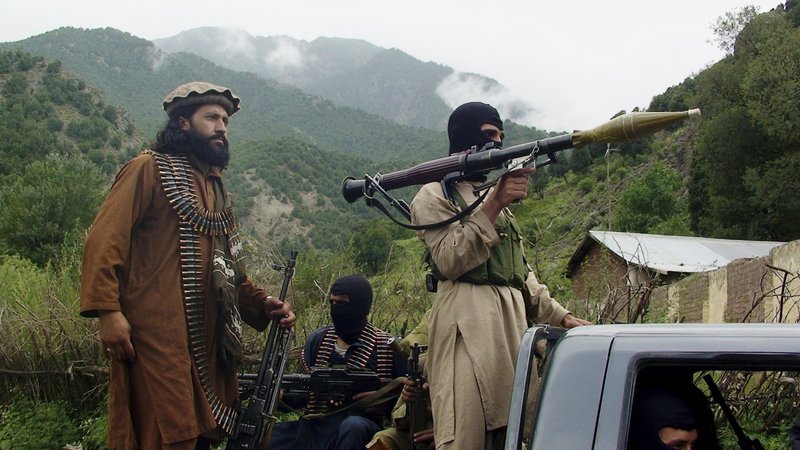How many Egyptians have appreciated the message behind Aliaa Magda Al Mahdy's naked photo? We only know that few have actually expressed admiration or support, and they did so by posting words of encouragement on her blog, her Facebook page and on Twitter, leaving the pages of printed media to reactions that ranged from the lack of sympathy to outrage. Her boyfriend Karim Amer — though he has nothing to do with the photo — was not spared.
The issue today seems to belong to the past, but we are reminded of Aliaa's action by scattered allusions in the press to the legal charges filed against her: spreading vice, encouraging lewdness and license, and contempt for religion. We are also reminded from material circulating on the net showing a girl resembling her being attacked in Tahrir or slaughtered — supposedly by Islamic fundamentalists.
More now than ever before, Egyptians from all walks of life are talking about liberty. The chants for freedom have united the revolting masses beyond — and regardless of — ideological affiliation. But why has the call for a freer society limited itself to the political sphere: liberties stated in the constitution, parliamentary elections, management of state institutions and — to a lesser extent — media freedoms? Can one espouse democracy as a political system without extending its logic to gender relations, sexuality and issues of personal privacy?
Most important, why have the self-proclaimed "liberals" forsaken Aliaa and exerted all their efforts to excommunicate her from their liberal ideal? Most of those who reiterate the slogans of freedom and democracy have politely denounced Aliaa's move, but not from the point of view of rejecting permissiveness and debauchery — for that would equate them with the same forces "of darkness" against which they have come to define their raison d'être.
Instead of discussing Aliaa’s fundamental right to undress as she pleases, post whatever she likes on her blog — in short to exercise freedom of thought and expression and do what she sees fit as long as she doesn't directly harm anyone — those who tend to view themselves as being opposed to all forms of oppression have nevertheless abstained from uncompromising support for Aliaa's freedom of expression. Instead, they slammed her from the point of view of aesthetics, depth, timing and "cultural sensitivity."
Instead of supporting her, they pitied her; they made statements about her "confused" state of mind, and the fact that she is one year below the age of legal adulthood. The sympathy they expressed is that which one feels for a human being who is "messing up her life" (as some noted worriedly), and who is naïve and unaware of the consequences of her act, that she is not aware of the risks (i.e. getting killed by the forces of evil: the Salafis). Underneath this patronizing tone, there’s a reluctance to either support Aliaa's courageous venture or attack it as immoral.
In the middle, there also stands those who purport to speak in the name of "art," who criticize the photo's composition and lighting or write pretentious commentaries to educate the ignorant masses of internet users about the subtle difference between "nude art" and pornography. One blogger went as far as to estimate that Arabs — apparently out of a perceived cultural exceptionalism — will never be able to differentiate between nude art and pornography, and Aliaa must therefore bear the consequences of her lack of understanding.
It is ironic, however, that when a court ruling in May 2009 banned porn sites on the net with the justification that "freedoms of expression and public rights should be restricted by maintaining the fundamentals of religion, morality and patriotism," few people succumbed to the logic behind restricting their freedom to view what they wish on the internet.
But what some described as the “pornographic” nature of Aliaa's photo is not what was most shocking about it. According to the latest “Google trends” statistics, Egypt ranks fourth worldwide in the highest web search requests for the word “sex.” Obviously it is not Aliaa's nudity — accessible only by willfully requesting her website and acknowledging Google's warning message —that threatened the fundamentals of religion, morality and patriotism. It is Aliaa's deliberate identity revelation, her willingness to endure the consequences of breaking the rules, and her lack of shame vis-à-vis her naked body that disturbed many. It is her espousal of the most abstracted symbol of freedom: “I undress. I am not afraid of you. I am not ashamed of my body.” After all, if you do not appreciate this act as being a challenge to double standards in social norms and practices, you can just pretend you did not see it.
Others emphasized the futility not only of Aliaa's move, but also of the attention it has attracted. Many denounced the occurrence being given so much attention, and desperately remarked that there are "bigger things happening" or that it was not "deep" enough to be a big deal. They thus took the pain to write about something to tell people it is not worth writing about!
The issue of timing was another pretext taken up by those who criticized Aliaa but did not want to appear as though they were against personal freedoms. "Sorry but Egypt is not ready for your step" one tweep said. By criticizing Aliaa's nude photo on the ground of unsound "priorities," the liberals are espousing the same holistic discourse they are fighting, according to which freedom should be limited by an intellectual judgment of what is in the interest — and the good timing — of a fixed society whose course they are nevertheless seeking to affect, gradually and without any confrontations.
Evaluating such actions in terms of the extent to which they will be accepted "by society" means that what the liberals stand for is their survival as a group, rather than the ideas they seek to further. Alienated, they nevertheless claim the authority to speak on behalf of a society they feel culturally isolated from. Instead of drawing them closer to the cultural reality they seek to engage with, the liberals' precarious defense of liberties only reveals a paralyzing sense of cultural isolation which deepens their minority-feeling. It reveals that they base their project around begging for the tolerance of a society bound by cultural determinism.
But the self-alienating timidity of liberals is not new, and cannot be accounted for by the need to harvest votes in parliamentary elections or to counter the recent Islamist libel campaigns against liberalism. Before the revolution, Egyptian liberals rarely supported outspoken atheists when they were thrown in jail. They rarely campaigned for social freedoms or criticized oppressive practices of the “moral police.” They rarely defended women's rights from the point of view of personal freedom, but rather turned feminism into a patronizing awareness campaign and justified women's rights mostly by a discourse of necessity: “Women are an important part of society, they are 50 percent, they bring up the kids. That's why you should consider giving them some rights.”
No wonder those who wrote in support of Aliaa and even posted their own nude pictures in solidarity were mostly Iranian women in exile. In Iran, the state employs its physical force and an army of cultural institutions to implement sexist policies, control people's private lives and personal freedoms. Those who seek to challenge this oppression are no longer an ashamed cultural minority that has trouble feeling integrated. Iranian feminists have thus rid themselves of the shame and fear of being culturally isolated. By standing up for their rights as human beings rather than as “mothers and as 50 percent of the labor force,” Iranian feminists have been better able to stand on solid grounds; they do not have to be apologetic in their discourse and practice of personal freedom.
At the same time Aliaa was receiving condescending comments from her fellow liberals, hundreds of Chinese citizens were reacting to China’s investigation of activist and artist Ai Weiwei, who was accused of spreading pornography after he posted a picture of him and four women sitting naked. In solidarity, his supporters have tweeted their naked photos with the message: “Nudity is not pornography.” Their action is an example of an age-old form of protest: going naked.




